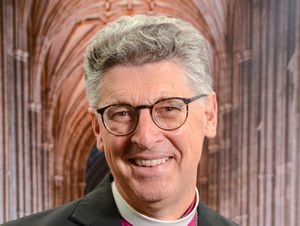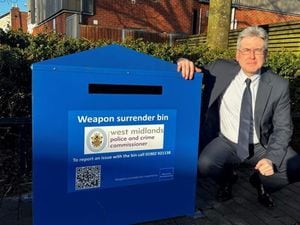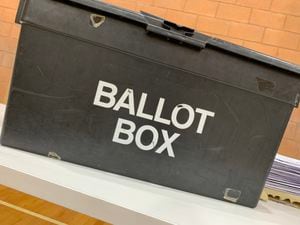Bishops welcome 'huge step forward' as Church of England backs blessings for same sex couples
Same-sex couples are set to be able to receive God's blessing under new plans being drawn up by the Church of England.

For the first time, under historic plans outlined on Wednesday, same-sex couples will be able to come to church to give thanks for their civil marriage or civil partnership and receive God’s blessing.
The Bishops of the Church of England will be issuing an apology later this week to LGBTQI+ people for the “rejection, exclusion and hostility” they have faced in churches and the impact this has had on their lives.
The plans, which follow a six-year period of listening, learning and discernment known as Living in Love and Faith, will be outlined in a report to the Church’s General Synod, which meets in London next month.
Under the plans, same-sex couples would still not be able to get married in a Church of England church, but could have a service in which there would be prayers of dedication, thanksgiving or for God’s blessing on the couple in church following a civil marriage or partnership.
The proposals for the Church of England follow a discussion at the Lambeth Conference of Anglican bishops from around the world last year on topics including same-sex marriage and blessings.
Bishop Martin Gorick, the Bishop of Dudley, was among those who had spoken out in favour of allowing same-sex marriage in church, alongside the Bishop of Worcester, Rt Rev. Dr John Inge.
He said that while he was disappointed that the Church of England was not enabling the solemnization of holy matrimony or marriage in church for same-sex couples, it was good to see clergy being able to celebrate these relationships if they wanted to.
He also spoke about the thought about how the current doctrine in place couldn't just be changed overnight.
He said: "All the bishops in the Church of England have spoken about this in a meeting around relationships and gender and one particular issue of discussion was around same-sex marriage.
"The Government changed the law on marriage in 2013 to enable same-sex marriage and that means a whole change of doctrine and understanding in the church and wasn't something the church could just straight away switch to.
"We're a worldwide community and have member churches all over the world like the Roman Catholic Church and the Orthodox Church and you can't just switch doctrines, so it's been a long process."
The Bishop of Worcester, Rt. Rev. Dr John Inge, said of the proposal: “Though it does not go as far as some of us would have liked, it is a huge step forward.
"We shall, for the first time, be able to affirm and pray for God’s blessing on faithful monogamous gay relationships.”
The Bishop of London, Sarah Mullally, who chaired the group of bishops which led the process of discernment and decision making, said: “I want to offer my heartfelt thanks to all who have participated in the process which has brought us to this point.
“I know that this has been costly and painful for many on all sides of the debate and has touched on deeply personal matters and strongly held beliefs.
“We have been moved by what we have heard and seen. And what has come through very clearly, even though there continues to be disagreement among the bishops and among the wider church on these questions, is a strong desire to continue to share our life together in Christ with all our differences.”
The Synod will be asked to discuss the proposals in detail during its meeting from February 6 to 9, with the main debate on the proposals due to take place on February 8.





